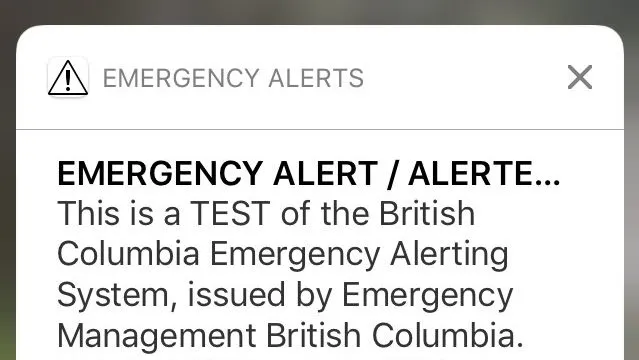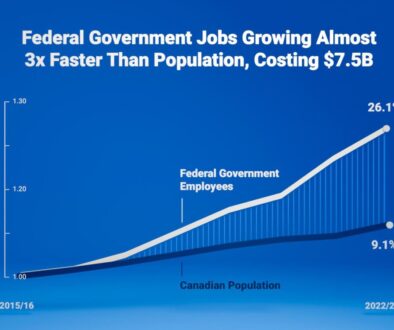Emergency legislation Alert – BC
On November 8, 2023, BC government replaced Emergency program act, and Emergency and Disaster Management Act came into force. “The updated legislation reflects the realities of the modern world including global pandemics, security threats and climate change, and shifts from focusing on emergency response to the four phases of emergency management: mitigation, preparation, response, and recovery. While some powers and duties under the Act are now in effect, others will be brought into force through regulation,” government stated on the website.
Broad engagement is currently underway on the development of regulations for local authority emergency management and post-emergency financial assistance. There are various ways how public can participate:
- Provide a written submission by January 31, 2024
- Read and respond to blog posts about post-emergency financial assistance (currently known as disaster financial assistance or DFA) by January 31, 2024
- Email modernizeEM@gov.bc.ca if you are interested in joining a virtual session for First Nations rights holders in January 2024
https://engage.gov.bc.ca/emergencymanagementregulations

There are important paragraphs to watch:
Declaration of state of provincial emergency
59 (1) If the Lieutenant Governor in Council or the minister is satisfied that an emergency is present, the Lieutenant Governor in Council or the minister, as applicable, may, by order, make a declaration of a state of provincial emergency relating to all or part of British Columbia.
(2) A declaration must identify the nature of the emergency and the area to which the declaration applies.
(3) The minister may make a declaration orally or in writing.
(4) As soon as reasonably practicable after a declaration is made, the minister must,
(a) in the case of a declaration made orally, reduce the declaration to writing and publish the declaration, and
(b) in the case of a declaration made in writing, publish the declaration.
(5) For certainty, a declaration of a state of provincial emergency does not affect the authority of any person to declare, continue or extend
(a) a state of local emergency or a local recovery period under Part 6, except to the extent that the minister has cancelled a declaration of a state of local emergency or a declaration of a local recovery period, or
(b) an order made under another enactment with respect to an emergency within the meaning of that enactment.
Land and other property
76 (1) The minister may, by order, do one or more of the following:
(a) appropriate, use or control the use of any personal property;
(b) use or control the use of any land;
(c) authorize the entry without warrant into any structure or onto any land by any person for the purpose of taking emergency measures;
(d) prohibit the entry into any structure or onto any land by any person;
(e) authorize or require the alteration, removal or demolition of any trees, crops, structures or landscapes;
(f) authorize or require the construction, alteration, removal or demolition of works;
(g) require the owner of a structure to
(i) have any damage to the structure assessed, and
(ii) give the results of the assessment to the minister or a person in a class of persons specified by the minister.
(2) The power under subsection (1) (b) to use or control the use of land does not apply to specified land.
Evacuations and removals
77 (1) The minister may, by order, do one or more of the following in relation to any area to which a declaration of a state of provincial emergency applies:
(a) require a person to evacuate from the area;
(b) authorize the evacuation of individuals or animals, or both, from the area;
(c) authorize the removal of personal property from the area.
(2) If the minister makes an order under subsection (1), the minister may arrange for
(a) the adequate care and protection of evacuated individuals or animals, or both, and
(b) the adequate protection of personal property that has been removed.
(3) Unless the minister directs otherwise, the provincial administrator may do all the things that the minister may do as described under this section with respect to any area that is not within the jurisdiction of a local authority.
(4) Sections 71 and 72 [when and how response powers may be exercised] apply to an exercise of power under subsection (3) of this section as if the provincial administrator were the minister.
General restrictions
78 (1) The minister may, by order, control or prohibit one or more of the following:
(a) travel to or from any area;
(b) the carrying on of a business or a type of business;
(c) an event or a type of event.
(2) The minister may, by order, do one or more of the following:
(a) require a person to stop doing an activity, including an activity that a person is licensed, permitted or otherwise authorized to do under an enactment;
(b) put limits or conditions on doing an activity, including limits or conditions that have the effect of modifying a licence, permit or other authorization issued under an enactment.
Mandatory compliance
139 A person must comply with
(a) this Act and the regulations, and
(b) all orders and emergency instruments made under this Act that apply to the person.
Peace officer assistance
140 (1) The provincial administrator may request that a peace officer assist a person in the exercise of a power or the performance of a duty with respect to the taking of an emergency measure.
(2) A peace officer whose assistance is requested under this section may take any action that the peace officer considers necessary for a purpose described in subsection (1).
Injunctions
141 (1) Without notice to any person, the minister or a local authority may apply, in the manner set out in the regulations, if any, to the Supreme Court for an order under this section.
(2) The court may order a person to do or refrain from doing those things that the court considers necessary if the court is satisfied that there is reason to believe the person is interfering with or obstructing, or will likely interfere with or obstruct, a person or peace officer who is
(a) exercising a power or performing a duty under this Act, or
(b) taking an emergency measure in relation to a declaration of a state of provincial emergency, a declaration of a state of local emergency, a declaration of a provincial recovery period or a declaration of a local recovery period
(i) in accordance with an emergency management plan, or
(ii) under an order of the minister or an emergency instrument of a local authority.
Offences
150 (1) Sections 4 and 5 of the Offence Act do not apply with respect to this Act or the regulations.
(2) A person who does any of the following commits an offence:
(a) contravenes an order made under section 56 [directed mitigation and preparation measures];
(b) contravenes an order or emergency instrument made under any of sections 73 to 78, 89, 107, 109 or 118 [response or recovery powers];
(c) provides false or misleading information with respect to
(i) a claim for compensation under section 126 [claiming compensation],
(ii) a request for compensation under section 130 [discretionary compensation],
(iii) a request for financial assistance under section 133 [requesting financial assistance], or
(iv) a request for information under section 158 (1) (c) (i) [information about persons needing services];
(d) interferes with or obstructs, in the exercise of a power, the performance of a duty or the taking of an emergency measure by a person who is a protected person within the meaning of section 154 [protection against legal proceedings] or a peace officer;
(e) contravenes section 158 (3).
(3) A proceeding for an offence under this section may not be commenced
(a) in any court more than 2 years after the facts on which the proceeding is based first come to the knowledge of the minister, or
(b) if an order imposing an administrative penalty is made under section 145 [order to impose administrative penalty] with respect to the same incident that gave rise to the offence.
Offence involving corporation
151 If a corporation commits an offence under this Act, an officer, director, employee or agent of the corporation who directs, authorizes, permits, participates or acquiesces in the offence also commits the offence, whether or not the corporation is prosecuted.
Continuing offences
152 If a person commits an offence under this Act and continues to commit the offence, separate penalties may be imposed with respect to the offence for each day the offence continues.
Penalties
153 (1) If an individual commits an offence under this Act, the individual is liable to one or both of the following:
(a) imprisonment for a term of not more than one year;
(b) a fine of not more than $100 000.
(2) If a corporation commits an offence under this Act,
(a) the corporation is liable to a fine of not more than $1 000 000, and
(b) an officer, director, employee or agent of the corporation who directed, authorized, permitted, participated or acquiesced in the offence is liable to one or both of the following:
(i) imprisonment for a term of not more than one year;
(ii) a fine of not more than $300 000.
What does it mean? If you will try to protect your home, property or livestock, from any disaster like a fire, flood, tsunami, etc. you will become a criminal. Under this Act, BC government can declare total control over every “person” and every “property” in British Columbia. Is it this a tool how to remove independent self- sufficient free people from their homes and put them in 15- minute cities? As a great Russian poet Alexander Solzhenitsyn said:” A state of war{emergency} only serves as excuse for domestic tyranny.”
DB



